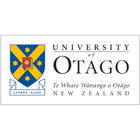Defined as travel for recreational purposes, the tourist industry brings in large amounts of income, and accounts for 30% of the world’s expert services.
There are a range of employment opportunities available within the travel and tourism industry, from entry level customer services roles to senior management positions, with the range of jobs available being as broad as the public’s appetite for leisure and relaxation.
Do you have a passion for travel? Do you love working with other people? Are you looking to pursue a career within a fast-paced and dynamic environment? If so, then tourism may be the perfect course for you.
However, in order to succeed on the course, students will be expected to have an interest in other cultures as well as an interest in business. Courses will expect students to learn about the structure and legal obligations of the tourism industry as a whole, as well as management techniques.
The majority of courses will also include work-based modules. In order to be successful, students must also be hard-working, enthusiastic and self-motivated in order to achieve strong grades.
There are a number of jobs currently available for young and old people alike within the tourism industry. From tourism officers and travel agent roles, to positions that allow graduates to travel themselves, such as travel reviewer positions and holiday representative work, where employees are expected to look after and manage tourist activities as part of holiday packages.
Similarly, there are many job roles where an in-depth knowledge of the tourism industry is beneficial. Many hotels employ tourism graduates to work on marketing campaigns, manage the day-to day running of the hotel or providing strong customer services. Similarly, many graduates are hired by events companies as event organisers, responsible for the production of launches and conferences.
Those with experience in tourism may also be considered for office roles within international companies, working as a PA for senior members, organising editorial content, and making travel arrangements.
The length and content of your course will very much depend upon the institution where you study as well as what level you study at. Most undergraduate courses last a minimum of 3 years, although some courses with more of a vocational focus may last for 4 years. In order to study on these programmes, you will be expected to have 3 A-levels or equivalent in related subjects.
Of course, there are a number of postgraduate courses available to students who have already received a strong degree classification in a similar field. Such courses will last between 1-3 years, and are more specific in their content.
Students wishing to study on a tourism course at any level who are non-native speakers, will be expected to take an IELTS test prior to the commencement of the course in order to demonstrate their comprehension of the English language.
As well as attending lectures and submitting written assignments, students may also be expected to take on a work-related placement, which may be assessed as part of the course. This will make learners more employable after graduation, and will provide them with valuable contacts within the industry.
It is also important to choose somewhere that will make you happy for the duration of your course, particularly if you’re opting to live away from home. It is important that you get the most out of your time as a student, particularly as your qualification will be costing a lot of money. Are you a socially active individual who will thrive in a city? Would you prefer to study at a large or small establishment? You should also ensure that living in the local area is within your budget, in addition to your course fees.
If you’re struggling to secure funding, there are a number of scholarships and grants available in order to help with course fees.
Most establishments will specify that applicants have specific A-level grades in certain subjects for undergraduate courses, or a 2:1 degree for any postgraduate qualification. Before you decide on which course you would like to study, make sure that you meet the entry requirements. If you just fall short of meeting these requirements, contact the university and see if they will make an exception.
When you are applying to study a travel and tourism course, it is important to not only look at the module options available to you, but also the practical hands-on experience that your university will allow you to gain during your studies. Is there the option to pursue a vocational work placement as part of your degree? Many establishments will cultivate relationships with leading firms who will not only provide students with strong practical experiences, but also allow for a diverse range of career opportunities.
If you’re looking to boost your CV, then you should also ensure that you either study in or close to a city with a thriving tourism industry such as London, Edinburgh or Dublin.





 Get application advice
Get application advice